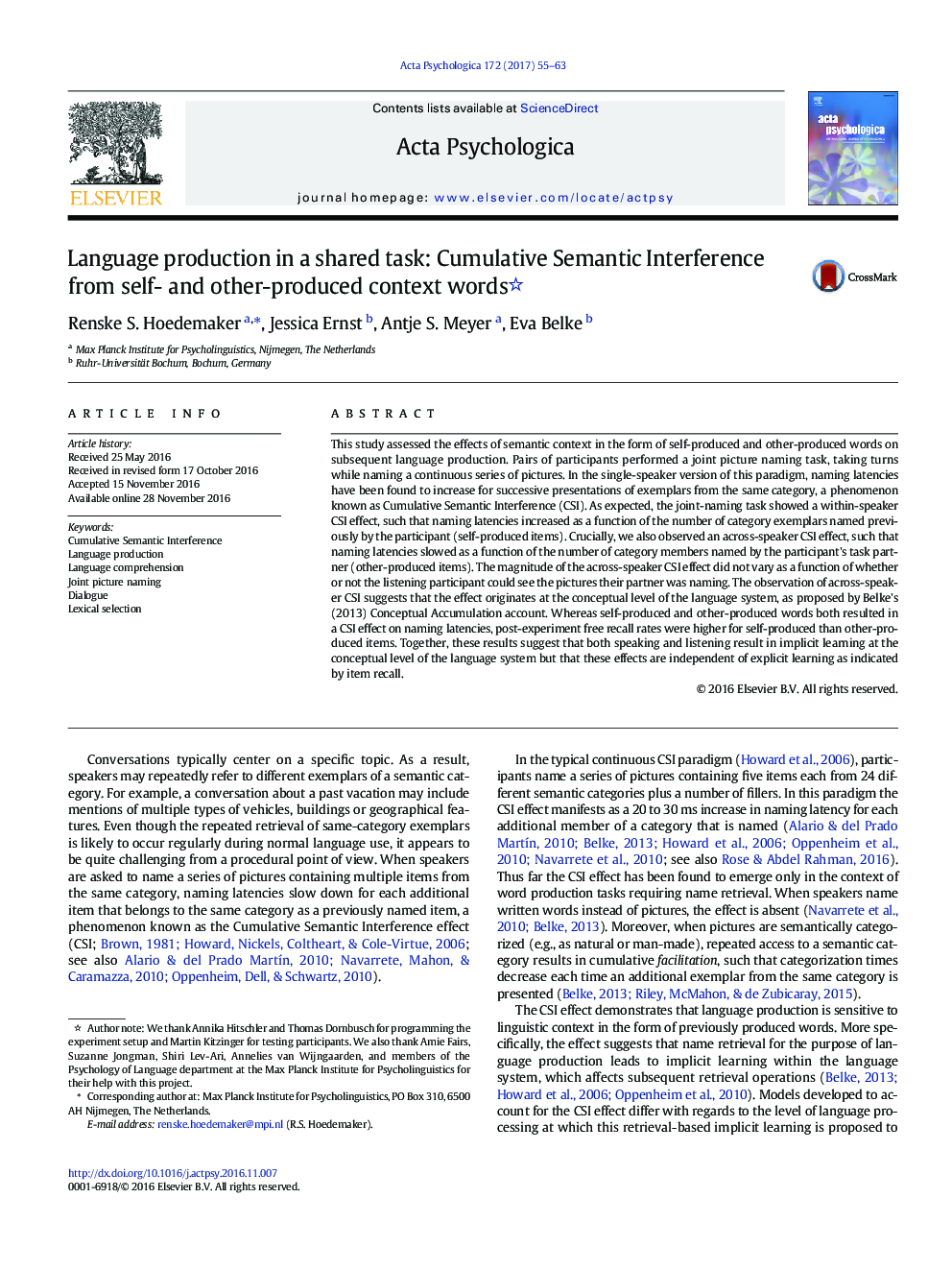| Article ID | Journal | Published Year | Pages | File Type |
|---|---|---|---|---|
| 5040254 | Acta Psychologica | 2017 | 9 Pages |
â¢Cumulative Semantic Interference (CSI) was assessed in a joint-naming task.â¢CSI was observed both within and across speakers.â¢Across-speaker CSI did not depend on the ability to predict a partner's utterances.â¢Free recall rates were higher for self-compared to other-produced items.
This study assessed the effects of semantic context in the form of self-produced and other-produced words on subsequent language production. Pairs of participants performed a joint picture naming task, taking turns while naming a continuous series of pictures. In the single-speaker version of this paradigm, naming latencies have been found to increase for successive presentations of exemplars from the same category, a phenomenon known as Cumulative Semantic Interference (CSI). As expected, the joint-naming task showed a within-speaker CSI effect, such that naming latencies increased as a function of the number of category exemplars named previously by the participant (self-produced items). Crucially, we also observed an across-speaker CSI effect, such that naming latencies slowed as a function of the number of category members named by the participant's task partner (other-produced items). The magnitude of the across-speaker CSI effect did not vary as a function of whether or not the listening participant could see the pictures their partner was naming. The observation of across-speaker CSI suggests that the effect originates at the conceptual level of the language system, as proposed by Belke's (2013) Conceptual Accumulation account. Whereas self-produced and other-produced words both resulted in a CSI effect on naming latencies, post-experiment free recall rates were higher for self-produced than other-produced items. Together, these results suggest that both speaking and listening result in implicit learning at the conceptual level of the language system but that these effects are independent of explicit learning as indicated by item recall.
